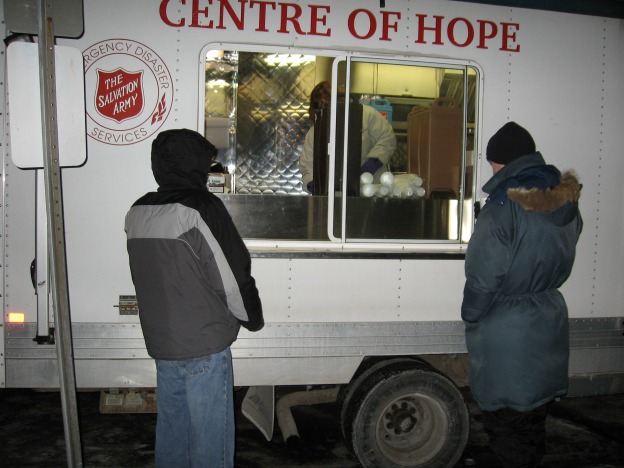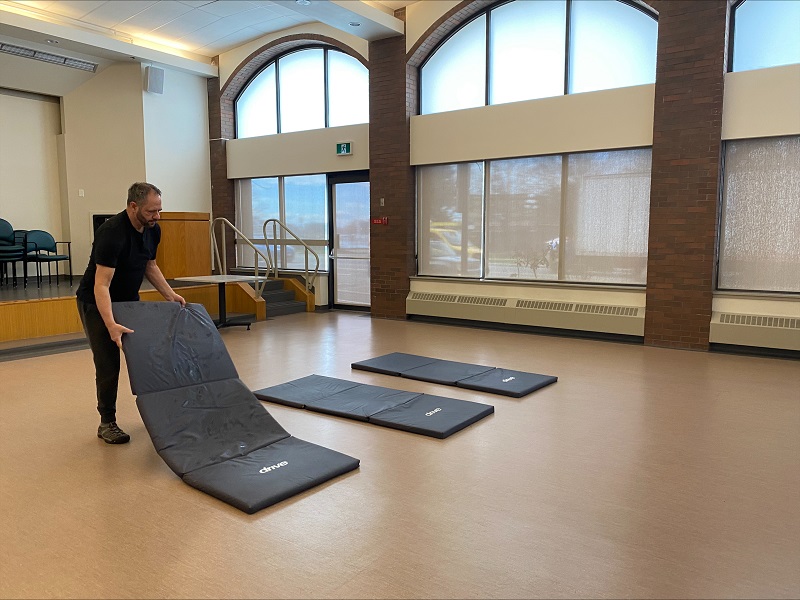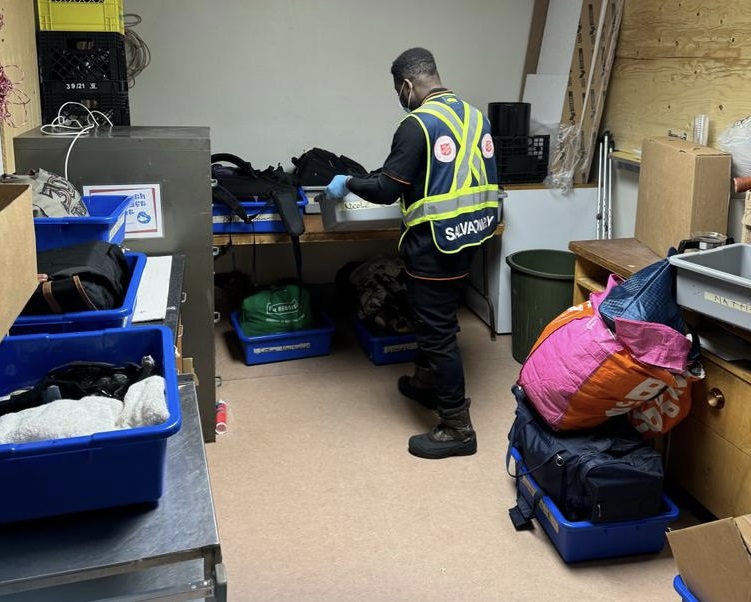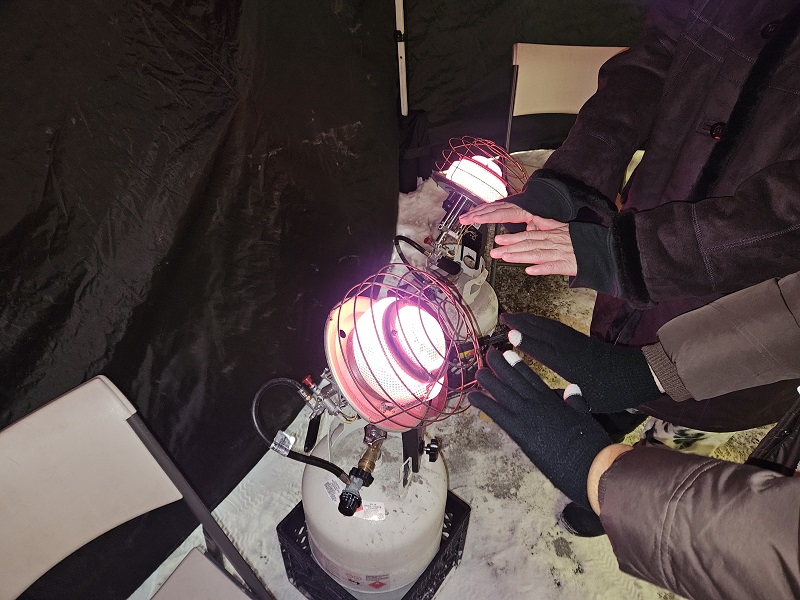Salvation Army Addresses Cold Weather Needs

Imagine that in sub-zero temperatures, you have to send your children to school in hoodies and runners because you can’t afford winter clothing. Or your hands are red, swollen and numb because you live on the streets and don’t own a pair of gloves. Sadly, even in a country as wealthy as Canada, this is an unwelcome reality for many people.
As temperatures plummet, The Salvation Army is doing its best to keep people warm by providing emergency shelter beds and life-sustaining necessities such as sleeping bags, coats, boots, socks and gloves.
“Cold weather is difficult for people living on fixed incomes (we don’t always see the hidden poverty) and those who call the streets home,” says Perron Goodyear, The Salvation Army’s National Director of Emergency Disaster Services. “I’ve been with our mobile outreach vehicles many times and seen people suffering from frostbite because they can’t afford mitts or hats.”
In Ottawa, The Salvation Army’s mobile outreach van hits the streets seven days a week from 11 a.m. to 3 a.m. the following morning. During extreme weather alerts, the hours are extended to round-the-clock.
"Even a pair of socks can make a big difference"
“We see the homeless trying to stay warm under bridges, in bank vestibules or by heating vents,” says Kristen MacDonald, Supervisor of Street Outreach for The Salvation Army’s Booth Centre. “We offer transportation to shelter and hand out winter wear.”
MacDonald is excited that a local community group is providing winter survival kits for The Salvation Army to distribute. "Even a pair of socks can make a big difference," she says.
“One day I saw an older gentleman shivering and with no gloves, waiting for a bus,” says Goodyear. “I could see his hands were red from the extreme cold and gave him a pair. He couldn’t believe they were free. Tears of gratitude flowed down his cheeks. It’s times like this that we need to remember those who are often forgotten―those who have a roof over their heads, but don’t have some of the other basic necessities.”



